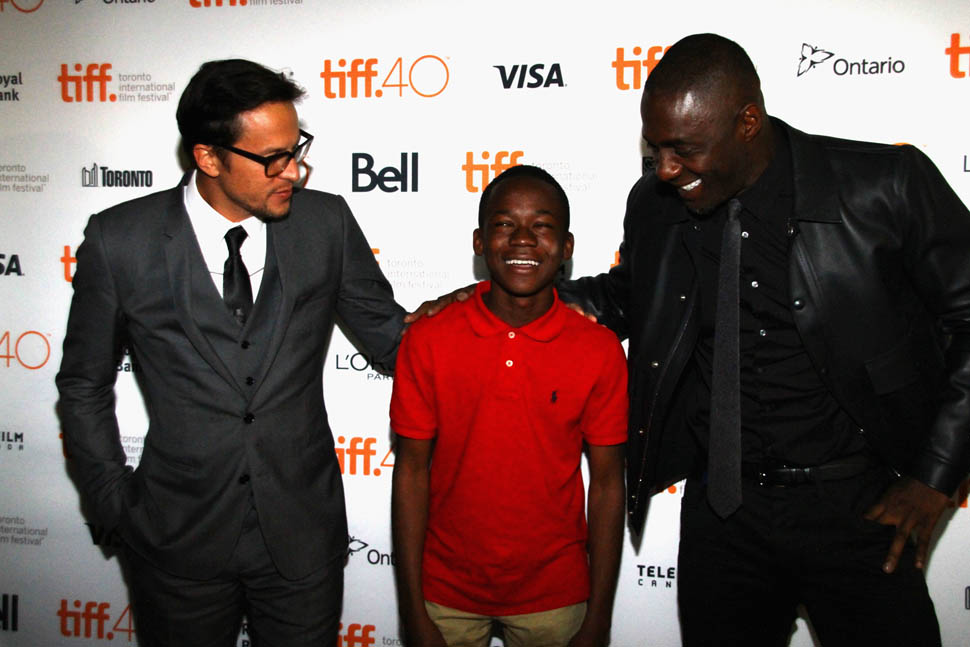TIFF Review: Beasts of No Nation



I heard some industry folks at TIFF sh*t-talking Netflix for allegedly overpaying for Cary Fukunaga’s Beasts of No Nation, Netflix’s first original feature film. They were of the opinion that Netflix will keep overpaying for movies and go bust, but just a few years ago TV executives were saying the same thing, and now look where we are. If Beasts is indicative of the kind of original films Netflix will be offering, the film industry will soon be in even more of a crisis because this film is incredible and it immediately makes Netflix a real player among specialty release outfits.
Based on Uzodinma Iweala’s book, Beasts centers on Agu (newcomer Abraham Attah), a young boy in an unnamed African country who loses his family when a coup overtakes his country. The details are purposefully kept vague, and the result is that we’re not sure where the real evil is, besides inside man himself. The guerrilla army Agu joins could be justified for all we know, but it doesn’t really matter because their leader, the Commandant (Idris Elba), is a power-hungry tyrant who demands total loyalty from his followers, even to the furthest edge of depravity. This is a very intense, hard movie to watch because every bad thing you can think of happens to Agu, the worst things at the hands of the Commandant.
Attah is simply phenomenal as Agu—he just won an acting prize at Venice—and Elba is chilling as the charismatic but terrifying Commandant. He’s basically a cult leader, conditioning his soldiers, many of whom are just children, to follow him through literal hell, and any threat to his authority is removed. The Commandant’s interest in Agu, and his fellow child soldier and friend Striker (Emmanuel Nii Adom Quaye), is creepy from the get, and just goes downhill from there. There is no corner of Agu’s innocence left by the time the Commandant is through with him, and Striker comforting Agu after being called to the Commandant’s quarters is one of the most indelibly powerful moments in a film full of them.
Fukunaga, acting as his own cinematographer, shoots Beasts in a sort of cinéma vérité way, with most of the action and violence filmed from Agu’s perspective. The effect gives you a literal child’s eye view of war, and it puts you on the ground with Agu as he commits terrible acts at the behest of the Commandant, and then later, under his own initiative. It’s visceral filmmaking, reminiscent of that famous long take from True Detective, though it’s not ever exploitative. The one ding on the technical aspects of the film is the use of digital blood effects—they just look terrible and take away from the otherwise tactile aesthetic of the film.
There is no getting around that this is an incredibly hard film to watch, and it will probably fare better on Netflix, where people can tell themselves they’ll stop the film if they need to, than it would in theaters, where you’re trapped. (Please don’t pause it, though, as movies aren’t meant to be watched that way.) Beasts of No Nation is horrifying, not least because Agu narrates it and hearing him say things like, “I don’t think I can go back to child things,” is utterly heartbreaking. Attah is a wonderful young actor and the scenes between him and Elba are some of the best acting I’ve seen at TIFF. But unlike many of the films I saw, which featured good performances but were no more than okay overall, Beasts as a film is worthy of its terrific lead performances. In case there was any doubt, Fukunaga is a MAJOR talent, and ought to be writing his own ticket from here on out.









